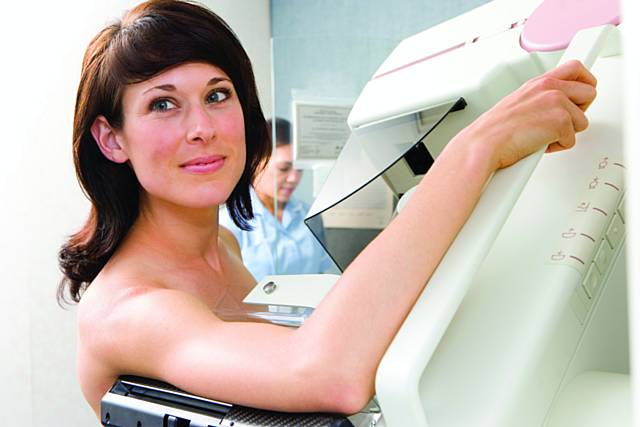'Breast awareness needs to start in your 20s', says BMI Healthcare
Date published: 22 October 2016

Breast Cancer Awareness Month 2016: “Breast awareness needs to start in your 20s
Breast cancer represents a rising threat for women, with more women being diagnosed with breast cancer than any other cancer in the UK. It stands as the second most common cause of death for women from cancer in the UK, and the second highest rising cancer in women.
The number of newly diagnosed cases has risen by a fifth in a decade. Breast cancer can affect anyone but early diagnosis can make the difference. It’s for that reason that everyone should understand the symptoms and be aware of the risk factors.
Despite this, and the risk facing women, as many as one in every three women aren’t checking their breasts for symptoms.
BMI Healthcare undertook research earlier this year to find out whether breast cancer and its symptoms were understood and the survey revealed that one in every three women aren’t checking their breasts and do not recognise the need for awareness of early diagnosis. The results demonstrate that a significant proportion of women in the UK do not understand the symptoms responsible for over 50,000 cancer diagnoses each year in the UK.
As part of Breast Cancer Awareness Month, Mr Mohammed Absar at BMI The Highfield Hospital in Rochdale is speaking out about the symptoms and advising women to take control. He comments:
“The most common symptom of breast cancer is a lump usually found by patients themselves. However other symptoms can indicate breast cancer and these include blood stained nipple discharge, nipple inversion or flattening, dimpling or tethering (an orange-peel appearance) of the skin over the breast, lumps in the armpit or neck, or any redness which may suggest inflammation or persistent pain. It is important to remember that one of these symptoms may not necessarily mean you have breast cancer but if you do notice a change you should seek clinical advice from your GP.
“Women should start becoming 'Breast Aware' from the age of around 25-30. About once a month especially a few days after periods are over when the breasts are less lumpy and/or tender is the best time to check. I’d encourage women to make a habit of this. It enables women to pick up changes in their breasts early and seek specialist advice if needed.”
Mr Absar continues, explaining which women are most at risk: “The UK has one of the highest breast cancer incidence rates worldwide and this is the most common form of cancer in the country. It affects both men and women and every year in around 11,700 women (32 every day) and 80 men die from the disease in the UK. The causes of breast cancer are not fully understood and are accepted to be multifactorial.
"Most people wrongly believe that the main reasons are a family history or a genetic predisposition to the disease, but in fact these account for less than 20% of breast cancers.
"It is actually difficult to say why one woman may develop breast cancer and another may not. Some of the other associated factors are early menarche [age of start of periods], late menopause [age of stoppage of periods], prolonged use of Hormone Replacement Treatment, obesity, alcohol abuse, as well as past history of Radiotherapy to the upper half of the body. On the other side of the coin, shown to have a protective effect are a higher number of full term pregnancies and breast feeding.”
Nichola Evans, Group Director of Oncology at BMI Healthcare said: “There is no room for complacency when it comes to being vigilant and reporting symptoms. It is worrying to find that key breast cancer awareness messages are still not getting through to a proportion of the population and it is clear that more must be done to tackle the underlying issues.”
BMI Healthcare, the UK’s largest hospital group, has launched a breast cancer awareness campaign in line with Breast Cancer Awareness Month 2016, helping to further raise awareness of breast cancer.
BMI is supporting Breast Cancer Now, the UK’s largest breast cancer charity, who believe that ‘if we all act now, by 2050, everyone who develops breast cancer will live’. BMI is encouraging women to download a breast cancer awareness guide to help them be more breast cancer aware, and Breast Cancer Now’s breast check app called Breast Check Now; you can find the free guide at:
Do you have a story for us?
Let us know by emailing news@rochdaleonline.co.uk
All contact will be treated in confidence.
Most Viewed News Stories
- 1Royton haulage firm fined after Rochdale dad went to work and didn’t come home
- 2Six men arrested in Rochdale child exploitation investigation
- 3Rochdale church to host Camerados public living room
- 4Suspended council candidate was ‘politically naive’ for appearing in George Galloway video, leader...
- 530 years of the GEM Appeal, a Rochdale-founded charity that has raised millions and changed the...
To contact the Rochdale Online news desk, email news@rochdaleonline.co.uk or visit our news submission page.
To get the latest news on your desktop or mobile, follow Rochdale Online on Twitter and Facebook.


